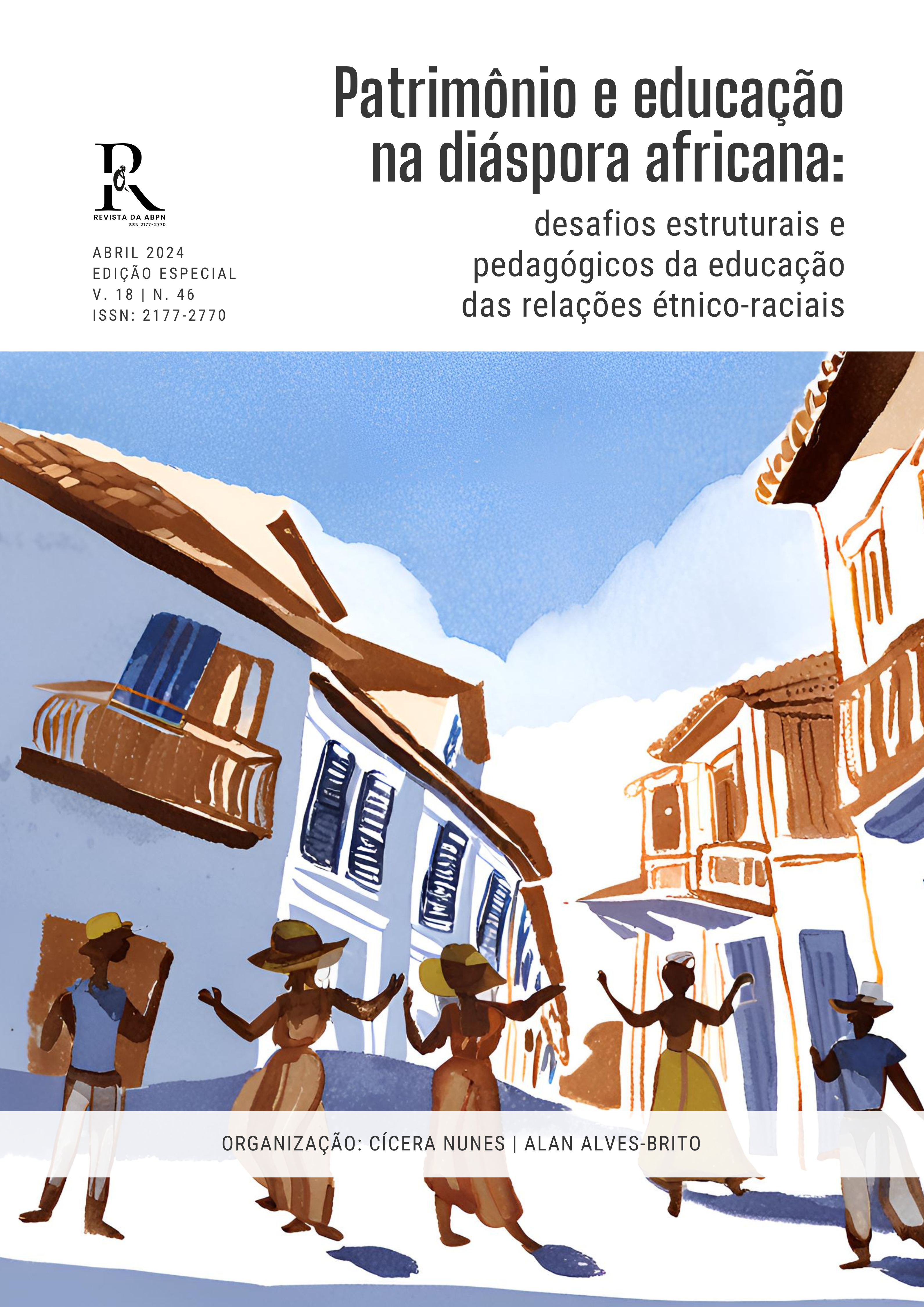The LAW 10.639/03 AND NEW PERSPECTIVES ON THE LEGENDS ROMÃOZINHO AND O NEGRINHO DO PASTOREIO BY LUÍS DA CÂMARA CASCUDO
Main Article Content
Abstract
Stories in which the presence of black characters escapes the stereotype, when narrated in the classroom, can contribute to the construction of an education that aims for a more egalitarian society and a more equitable social imaginary. Thus, in this text we propose a discussion on the repositioning of the literary productions of folklorist Luís da Câmara Cascudo based on Law 10.639 (Brazil, 2003a) - which makes the teaching of Afro-Brazilian and African History and Culture compulsory in schools - and Stuart Hall's Theory of Representation (2016). We sought to take a fresh look at the legends "Romãozinho" and "O Negrinho do Pastoreio" and reflect on the place of black characters in the regime of representation of "Lendas brasileiras", the work of the folklorist. We observed that these characters were stereotyped and, for this reason, it is necessary to approach the legends in the classroom with a critical eye and new approaches aimed at narrating black people within a new regime of representation.
Article Details

This work is licensed under a Creative Commons Attribution 4.0 International License.
Copyright Statement
- Authors retain copyright and grant the journal the right of first publication, with work simultaneously licensed under the Creative Commons Attribution License CC-BY 4.0 which allows the sharing of the work with acknowledgment of the authorship of the work and initial publication in this journal.
- Authors are authorized to enter into additional contracts separately for non-exclusive distribution of the version of the work published in this journal (eg, publishing in institutional repository or book chapter), with acknowledgment of authorship and initial publication in this journal.
- Authors are allowed and encouraged to post and distribute their work online (eg in institutional repositories or on their personal page) at any point before or during the editorial process, as this may lead to productive changes as well as increase impact and citation of published work (See The Effect of Free Access).

